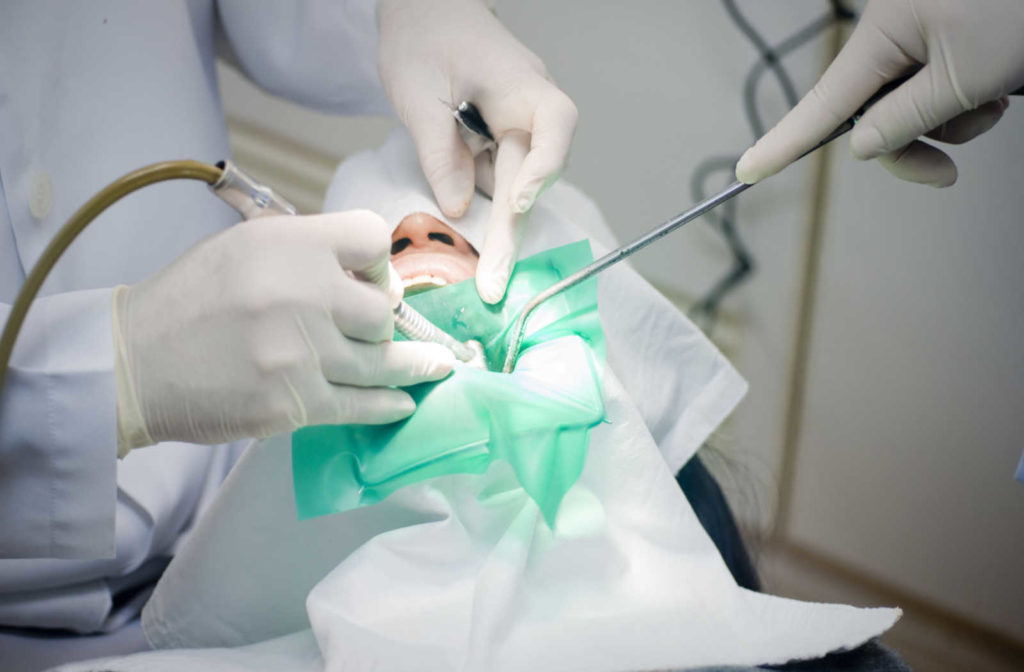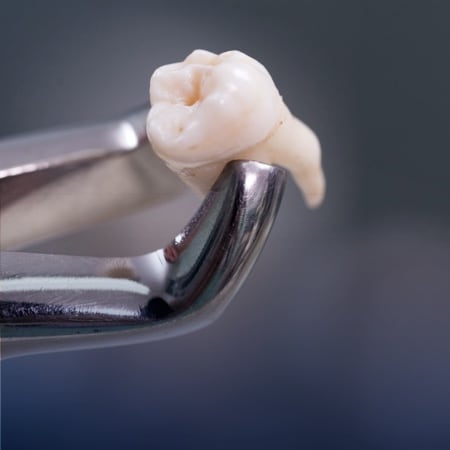Understanding OHIP Coverage
Oral health is essential to your overall health. So when patients experience tooth decay or facial trauma, getting the care they need is crucial. However, knowing what’s covered by OHIP or your insurance can be a bit of a head-scratcher.
As performed by an oral and maxillofacial surgeon (OMFS), oral surgery is more than a dental exam or a reminder to floss your teeth. There are many treatments available through OMFS, from cosmetic to restorative. But is oral surgery covered by OHIP?
What Is Oral Surgery?
Oral surgery is any surgical procedure performed on oral structures. When most patients think of the dentist, you likely think of teeth. But dentists are more than tooth experts. Their healthcare knowledge expands to tissue inside and outside your mouth. Therefore, oral surgery can include procedures performed on any of the following:
- Gums & lips
- Mucous membranes
- Palate & jaw
- Teeth
- Tongue & cheeks
Although oral and maxillofacial surgeons (OMFS) are dentists, they’ve completed a university post-graduate program specializing in the diagnosis and surgical treatment of conditions affecting the oral and maxillofacial region. Oral surgeons can also treat issues related to the face, head, neck, and sinuses, including:
- Cleft lip or palate
- Facial, oral, or neck cancer
- Reconstructive surgery (jaw, cheekbones, teeth)
- Skeletal problems (temporomandibular joint disorder)
Oral Surgery & Sedation
Although procedure complexity can vary, there are a few options for sedation to help make the experience more comfortable. Sedation methods for oral surgery typically include:
- Local anesthesia
- General anesthesia
- Intravenous conscious sedation
Oral and maxillofacial surgeons receive training to provide anesthesia services safely. In addition, an oral surgeon’s office has the equipment and facilities that allow them to offer sedation dentistry services. Oral surgeons also work with qualified staff, including registered nurses, to provide quality patient care.
Oral Surgeon vs. Dentist: What’s the Difference?
Oral surgery and dental surgery are sometimes used interchangeably. However, dental surgery generally refers to restorative dental services—such as a broken tooth. A dentist may perform some dental surgery procedures, but oral surgery requires an oral surgeon.
For example, dentists and oral surgeons may perform a tooth extraction or wisdom teeth removal. Dentists will refer patients to an oral or maxillofacial surgeon for more invasive surgeries.
When you have tooth pain or gum problems, patients are most likely to schedule a visit with their general dentist first. Your family dentist can help diagnose and treat various dental issues. They can also determine if an appointment with an oral surgeon may benefit your oral health.

OHIP Coverage for Oral Surgery
The Ontario Health Insurance Plan (OHIP) does not cover dental services performed in a dental office. Therefore, any procedure (even oral surgery) completed by your dentist will not be covered by OHIP.
OHIP doesn’t provide coverage for oral surgeries performed in any out-patient facilities. Although oral surgeons’ offices have areas resembling hospital operating rooms, the facilities of oral and maxillofacial surgeons are considered private offices.
However, some dental or oral surgeries must be performed in a hospital. For example, the surgery may be complicated by the patient’s health needs, or the patient’s health condition requires additional monitoring. When oral surgery is completed in the hospital, OHIP does cover the cost of the surgical procedure, but not the cost of any initial assessment or consultation.
Patients must attain prior approval for the oral surgery or services to be considered medically necessary, a process which can take some time. OHIP generally covers in-hospital dental surgeries such as:
- Fracture repair
- Tumour removal
- Reconstructive surgeries
- Medically necessary tooth removal
It can be challenging for patients to navigate some of the fine print, as sometimes only select portions of the procedure are covered. For example, orthognathic surgery (orthodontic surgery) is covered by OHIP, but some preliminary services may not be. Patients that have questions about whether their surgery is OHIP eligible should talk to their oral surgeon.
Additional Coverage
When oral surgery and related services are not covered by OHIP, there are other coverage options for patients. For example, coverage through a patient’s provider or employer insurance plan can vary.
Patients are encouraged to talk to their dentists or oral surgeons about how their dental plan can work with their treatment plan. Patients can also submit a pre-treatment plan to their benefits provider to receive an estimate of what may be covered.
There are government dental programs available for financial assistance. There are some programs available at the provincial and federal levels. One example of funding available through Ontario is the cleft lip and palate dental program. The program covers up to 75% of treatment costs, which can include:
- Dental infant orthopedics
- Dental implants & oral surgery
- Dental prosthetics
- Orthodontic treatment
- Restorative dentistry
Another example is dental care for low-income seniors. Adults over 65 can be eligible for some oral surgery services, such as removing teeth or abnormal tissue.
Stay Informed About Coverage
If you’re considering oral surgery or your dentist has recommended a procedure, contact CVOS Oral Surgery. We have locations in the Mississauga, Burlington, Milton, and Oakville areas. Our oral and maxillofacial surgeons can help patients learn more about what to expect before, during, and after oral surgery.If you have questions about insurance or OHIP coverage, please ask our staff. Our team stays up-to-date to help make your experience more comfortable. Contact us for a consultation today.









